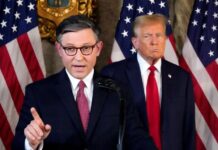Outgoing Secretary of State Antony Blinken elaborated on the Biden Administration’s approach to the Ukrainian Conflict during a podcast with the New York Times whose transcript can be read here. He began by reminding his interlocutor about the US’ alleged concerns that Russia might use nuclear weapons before downplaying the risk of a direct hot war between it and the US. He also accused Russia of carrying out hybrid attacks against Europe, including acts of sabotage and assassinations.
When Blinken was asked about the US restricting Ukraine’s use of its arms, he let slip that his country “quietly” sent it “a lot of weapons” like Stingers and Javelins in the September and December before the special operation began. This disclosure lends credence to Russia’s claims in the run up to that fateful event that the US was arming Ukraine to the teeth ahead of another offensive against Donbass. Blinken spun these shipments as instrumental to saving Ukraine but the reputational damage was done.
He then addressed the core of the question by mentioning that Ukrainian troops weren’t already trained to use some of the equipment that was sent after 2022. Blinken added that some of it is difficult to maintain and that the US wanted these arms to be part of a coherent plan. He also said that the guiding principle behind these shipments was always to defend Ukraine. In reality, he’s trying to deflect criticism from Ukraine that the US didn’t do enough, which began after summer 2023’s failed counteroffensive.
Blinken was also asked about the US’ lack of a parallel diplomatic track to end the conflict amidst its increasing arms shipments to Ukraine, which prompted him to initially deflect from answering by presenting the coalition of over 50 countries opposed to Russia as a diplomatic achievement. He also claimed that he tried to avert the conflict through his meetings with Lavrov but blamed Putin’s “imperial ambitions” for what ultimately happened. Blinken also alleged that Russia doesn’t want peace.
This part of the interview was incredibly dishonest and can be interpreted as an attempt to protect his legacy amidst the revisionism that’ll follow upon the conflict’s inevitable end, whenever that’ll be, which’ll predictably lead to the Trump Administration and some of the media reassessing Blinken’s activities. The truth is that the US flat-out rejected Russia’s security guarantee requests and, as Blinken himself admitted just several minutes prior, had even “quietly” armed Ukraine to the teeth before that.
Moving along, he then declared victory over Russia by alleging that Ukraine’s continued survival supposedly dealt it a tremendous defeat, but this too can be seen as related to the defense of his legacy instead of an accurate reflection of reality. It also suggests that the aforesaid narrative might be relied upon by the incoming Trump Administration to justify whatever concessions it might make to Russia for ending the conflict. Observers should keep an eye on whether any members of his team echo this claim.
On the topic of concessions, Blinken implied that Ukraine must accept that it can’t reconquer its lost lands, but he cushioned this by saying that it won’t rescind its claims either. He also said that it could try to win back its territory via diplomatic means. It’ll be “increasingly integrated with Western institutions”, including NATO in his estimation, but that doesn’t mean that this will actually happen. His interlocutor also asked him whether this means that Ukraine’s fate will no longer rest with the US but with Europe.
Blinken responded by saying “Look, I hope very much – and I don’t want to say expect, but I certainly hope very much – that the United States will remain the vital supporter that it’s been for Ukraine.” That rounded out the relevant part of his latest podcast and hints at his belief that Trump will distance the US from Ukraine somewhat while asking the Europeans to pick up the slack. That aligns with what’s been reported about his plan for NATO and his other one for peacekeepers in Ukraine.
All in all, the significance of Blinken’s latest detailed words on the Ukrainian Conflict is that he admitted to the US “quietly” arming Ukraine to the teeth in the run-up to the special operation and reaffirmed that Russia had already been defeated long ago, both of which have important narrative consequences. The first legitimizes the special operation while the second justifies concessions to Russia for ending the conflict such as tacitly recognizing its control over Ukrainian-claimed territory at the very least.
It remains to be seen how the incoming Trump Administration might leverage this, such as if they pursue some of the dozen compromises that were recently proposed at the end of this analysis here, but the point is that it’ll now be easier to sell this to the public than before after what Blinken just said. He’s Biden’s top diplomat whose administration is ideologically at odds with Trump’s so the latter can rely on the former’s latest detailed words to justify whatever he does by framing it as a form of policy continuity.
After all, Blinken just unofficially admitted to the US worsening the NATO-Russian security dilemma that Putin later sought to resolve through the special operation but then said that the US also believes that he’s been defeated, so it follows that some concessions for ending the conflict aren’t immoral. The US directly contributed to it by “quietly” arming Ukraine to the teeth so some form of demilitarization is understandable in order to keep the peace by preventing another Russian “overreaction” later on.
Likewise, since Putin has supposedly been defeated since his forces never ended up conquering all of Ukraine and then erasing it from the map like Blinken conspiratorially theorized was the Russian leader’s plan all along, there’s no need for any more punitive actions due to the ignominy of this alleged debacle. The narrative stage has therefore been set, provided that Trump and his team are capable enough, for finally resolving this conflict through diplomatic means that could lead to a grand Russian-American deal.






















